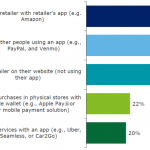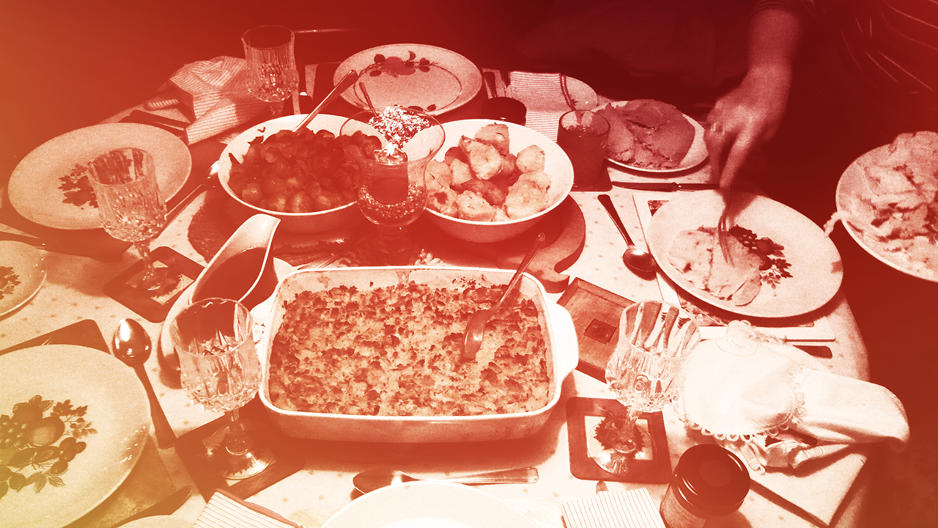One Brain Scientist’s Secret To Keeping The Peace During The Holidays
Fresh off an unusually fractious election, Americans are now packing bags and boarding planes to celebrate what promises to be an unusually fractious holiday season together. Some things will be as they’ve always been: we’ll get a break from the normal work routine to indulge in a bounty of food and drink and catch up with family and friends. In years past, even that has proved for many to be a recipe for overheated disputes across the dining room table. This year, that risk may have risen to new levels.
But it doesn’t have to be that way. In fact, understanding some basic brain science can not only help you keep your cool but may even bring you and your politically opposed relatives to a new understanding. Here’s what that takes.
Don’t Be Fooled By What You See And Hear
You may think you have your relatives all figured out. You’ve known them forever, and lately, you see what they’re posting on Facebook. Their ridiculous ideas and behaviors couldn’t be clearer, right? Not exactly.
Consider Uncle Joe. He’s 40 pounds overweight, yet at Thanksgiving dinner shows no sign of easing up on the mashed potatoes. You might be tempted to tell him how bad those carbs are for him, how his extra weight may be increasing his chances of chronic disease, and how much better he’d likely feel if he dropped at least a few pounds.
That’s all probably true. It’s also probably completely unhelpful. That’s because you’re mistakenly attributing Joe’s bad behavior—overeating—with misplaced intentions: He’s not trying to lose weight because he doesn’t know how important it is or simply doesn’t care.
But people’s behaviors deviate from their underlying intentions—including yours—all the time. Why? The reason is found in a startling pair of statistics. First, the non-conscious part of our brains processes more than 10 million bits of information each second. That’s a massive amount of data. In fact, it’s roughly the size of a weekday edition of the New York Times. Imagine it—our brains devouring an entire edition of the Times each and every second.
But there’s a second, more sobering statistic: The conscious part of your brain, what you think of as your mind, runs at a pokey 50 bits per second.
As a result, we devote our scant 50 bits of conscious thought toward things that are either pressing or pleasurable, and let everything else slide. That bandwidth budget on conscious, deliberate decision-making means there’s a large and persistent gap between what we want to do if we were to stop and think about it, and what we actually do.
In other words, despite his behavior, Joe does know how he should be acting—and so do we. We know that smoking is bad, that eating and drinking to excess is unhealthy, that we shouldn’t text and drive, and that we’re not saving enough for retirement. When we travel for business, we carefully pack our workout gear, and all too often it stays that way—carefully packed—until we return home.
The point here is that bad behaviors aren’t always the result of bad intentions on which we act. All too often, they’re the opposite—the result of good intentions on which we don’t act.
How Disagreements Differ
There’s little chance of coming to any type of agreement until you can agree on the source of the disagreement.
Let’s say that my wife and I disagree about whether to bring the umbrella with us to the store. She says we should bring it; I don’t agree. This difference of opinion might be due to a difference in our beliefs about the chance of rain; how bad it is to be caught without an umbrella if it does rain; the hassle associated with carrying the umbrella around when it doesn’t; how willing she is to take chances versus how willing I am; and even what the definition of “rain” is—a drizzle, a downpour, or something in between.
This is far from just philosophical. Each of these differences in belief leads to different choices—different actions. So if our dispute comes down to the perceived chance of rain, for instance, we could consult a weather forecast or even make a side bet (where we take the umbrella but if it doesn’t rain, she gives me a 10-minute foot massage).
If the disagreement is about the how bad it is to get wet versus the hassle of carrying the umbrella, that’s different—so perhaps we agree that she should carry a small umbrella and I should take my chances without one. But at a minimum, we’ll at least agree on the underlying issue about which we’re disagreeing.
Forget About Changing Anyone’s Mind—Except Your Own
This matters because all too often, we jump from disagreeing to arguing. When we argue, we try to convince another person that their point of view is wrong and that ours is right. Economists call this a “zero-sum game” because if one party wins, the other party loses.
Add a little emotional heat, and an argument starts to feel—at least to the brain—like a threat. And once the brain perceives a threat, the chances that we’ll respond by either fighting or fleeing go way up.
But disagreeing doesn’t have to lead to an argument or activate your (and your relatives’) “fight or flight” response. In fact, the last time you bought a pizza, you and the shop’s owner had a fundamental disagreement of values: You valued the pizza over the cash, and he felt exactly the opposite way. I’ll bet neither of you tried to convince the other to change their view. Instead, you both cheerfully traded on that disagreement and both walked away feeling like winners.
Once we see disagreement as a potential means for generating value, we move out of the world of the zero-sum game and into one of cooperation. In personal relationships, this means dropping the goal of trying to change someone else’s mind—at least for the duration of the conversation—and instead taking advantage of an opportunity to see an issue from someone else’s point of view.
Disagreement doesn’t have to be unpleasant. Don’t confuse outward behavior with underlying intentions. Instead, it’s worth breaking a little sweat to understand the root cause of your difference of opinion. Do that, and as long as you’re open to learning something from somebody who sees things differently than you do, you’ll get through the holidays without any broken dishes or hurt feelings.
Fast Company , Read Full Story
(15)














